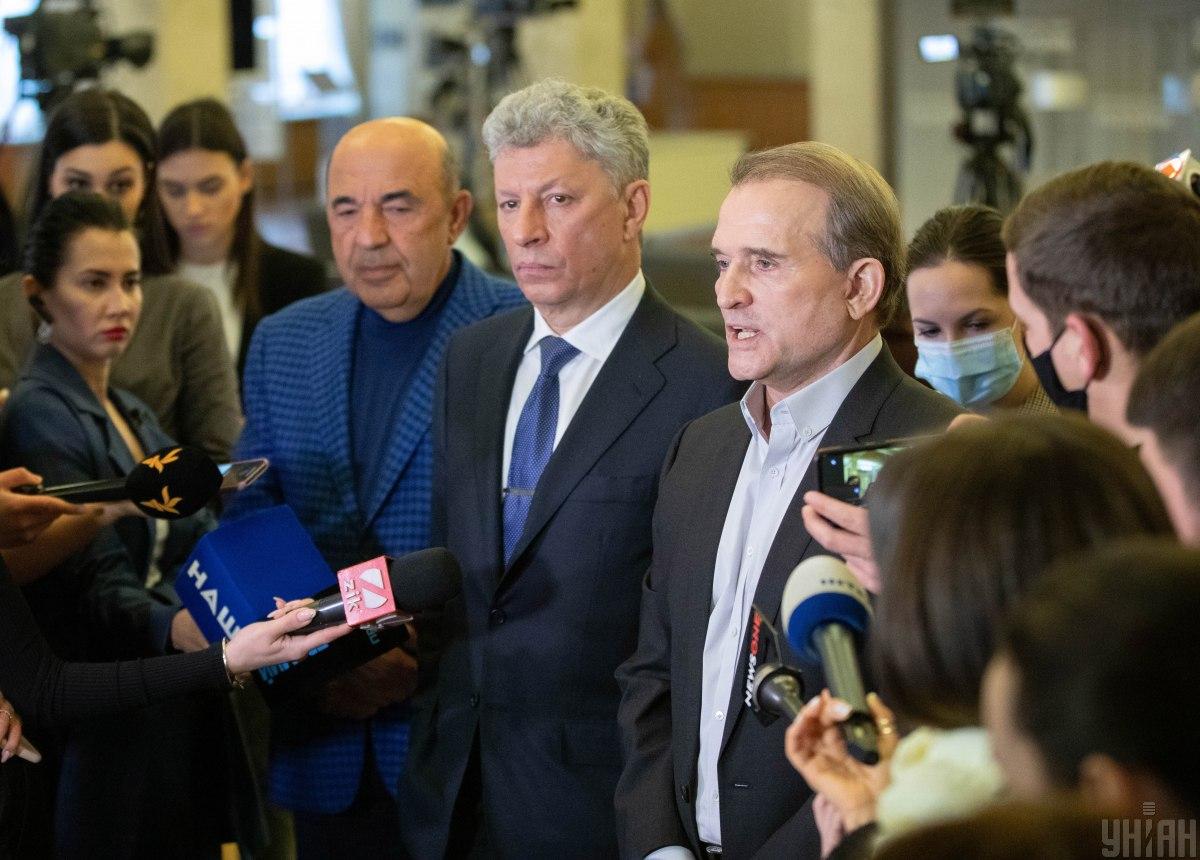
Chief of the U.S. Mission to the OSCE has commented on the recent move by the Ukraine government to ban a number of pro-Russian TV channels spinning propaganda and disinformation in line with the aggressor state's narratives.
"Moscow would have you believe that media freedom means it is acceptable to manipulate the media in another sovereign country," U.S. Chargé d’Affaires Courtney Austrian said in an address to the Permanent Council in Vienna on February 4.
"Let me be clear: Media freedom does not include the right to spread malicious propaganda and disinformation," she added. "We support Ukraine's decision to defend its sovereignty and territorial integrity by countering Russia's blatant and malign influence."
She noted that the media outlets shut down by Ukraine are well-known tools of Russian propaganda aimed at destabilizing Ukraine.
The diplomat also recalled that the outlets are controlled by Viktor Medvedchuk, "who has direct personal ties to Vladimir Putin and was sanctioned by the United States in 2014 for actions that threatened the peace, security, stability, sovereignty, and territorial integrity of Ukraine."
Read alsoMore TV channels could be sanctioned, NSDC saysMedvedchuk, she added, "has a long history of using media entities to promote pro-Kremlin positions that undermine Ukraine's sovereignty and territorial integrity."
Zelensky's ban on pro-Russian media outlets
President Volodymyr Zelensky on February 2 enacted a package of sanctions put forward by the National Security and Defense Council, effectively blocking a number of media assets, including 112 Ukraine, ZIK, and NewsOne TV channels that had been multiple times accused of preaching pro-Russian rhetoric, formally owned by Taras Kozak – an MP and ally of Vladimir Putin's crony Viktor Medvedchuk.
Commenting on own move, President Zelensky said he strongly supports freedom of speech, but not "propaganda financed by the aggressor country."
SBU security service chief Ivan Bakanov said, "There is a big difference between freedom of speech and outright anti-Ukrainian rhetoric. Freedom of speech ends where signs appear of encroachment on territorial integrity and sovereignty of Ukraine."
U.S. diplomats in Ukraine have supported the move and called for joint efforts "to prevent disinformation from being deployed as a weapon in an information war against sovereign states."
Meanwhile, the European Union's External Service said it was "assessing the implications" of the ban on TV channels.

